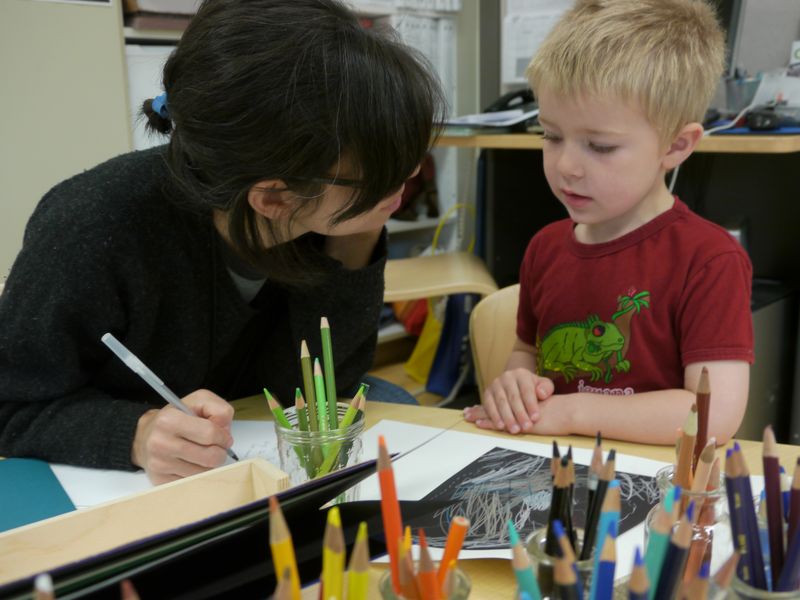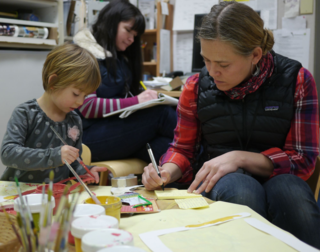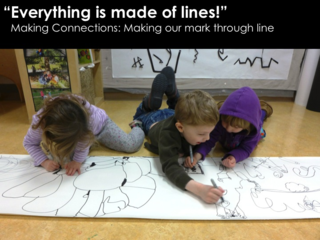Visitation Days Recap

Last week a large group of teachers and administrators – from across the West Coast, Los Angeles to British Columbia, and east to Alberta – converged on Opal School for an extended study of our approach to learning. I thought that those of you who weren’t able to join us would be interested in hearing a little bit about what we did together – and what participants had to say about it.
Classroom observations formed the core of our time together. Participants investigated the classrooms on their own Wednesday evening, then returned to see class in session Thursday and Friday mornings. They were encouraged to visit beyond the age-band of children they work with daily, seeking traces of what “playful inquiry” looks like with children ages 3-11.
Being able to visit the rooms three separate times was helpful. We were able to experience/re-experience it on more than one level and at a deeper level each time. A connection was made and I made discoveries and began to form a relationship… It will make a difference in the life of my classroom.
The connection to the values of Opal School was explicit – I know it’s lived because I observed it.
The remaining time was spent with presentations, facilitated discussions, connections to participants’ own contexts, and in conversation with other participants and Opal staff. Presentations included:
- An examination of the connections between scientific research and teacher research. Susan MacKay used this TED Talk* to reveal how groundbreaking work in neuroscience can mirror the teaching and learning processes found within a pedagogy of playful inquiry.
- Kerry Salazar discussed her experiences this year working with a newly blended Opal 2 classroom in a talk called, What can you do together that you can’t do on your own?
- In a presentation called, Making Connections: Making our mark through line, Caroline Wolfe and Lauren Adams shared investigations from this year’s preschool class.
- In The Power of Play, Levia Friedman discussed Opal 4’s adventures in the early colonies, playing their way through King Philip’s War.
- In Drawing Is Like Reading, Susan Harris MacKay led us to think with and through materials.
I came wondering what [playful inquiry] means… I am inspired to model and try to live my life with playful inquiry.You have such a ripple effect on the future of education: Carry on, and keep making those connections.
If you attended, please chime in in the comments section: What do you want readers who weren’t able to attend to know?
* I’m tickled by the fact that shortly after publishing this post I received several messages saying that I must have posted the wrong TED Talk. But no, dear readers: That’s the one! In the comments section, I’d love to read the connections you see between Courtine’s talk and our work!



I look forward to reading the Opal School blog, and thank you for sharing. I’m wondering about the Ted Talk link that is posted for this entry. Thanks.
Sorry it’s taken so long to see your post and reply, Laura! Susan shared the Ted Talk as representative of our approach to learning here in so many ways: the importance of groups embracing divergent approaches and making meaning together; opening up to a range of questions – especially ones which haven’t yet been asked; self-healing systems…
What do you see in the video?
Matt